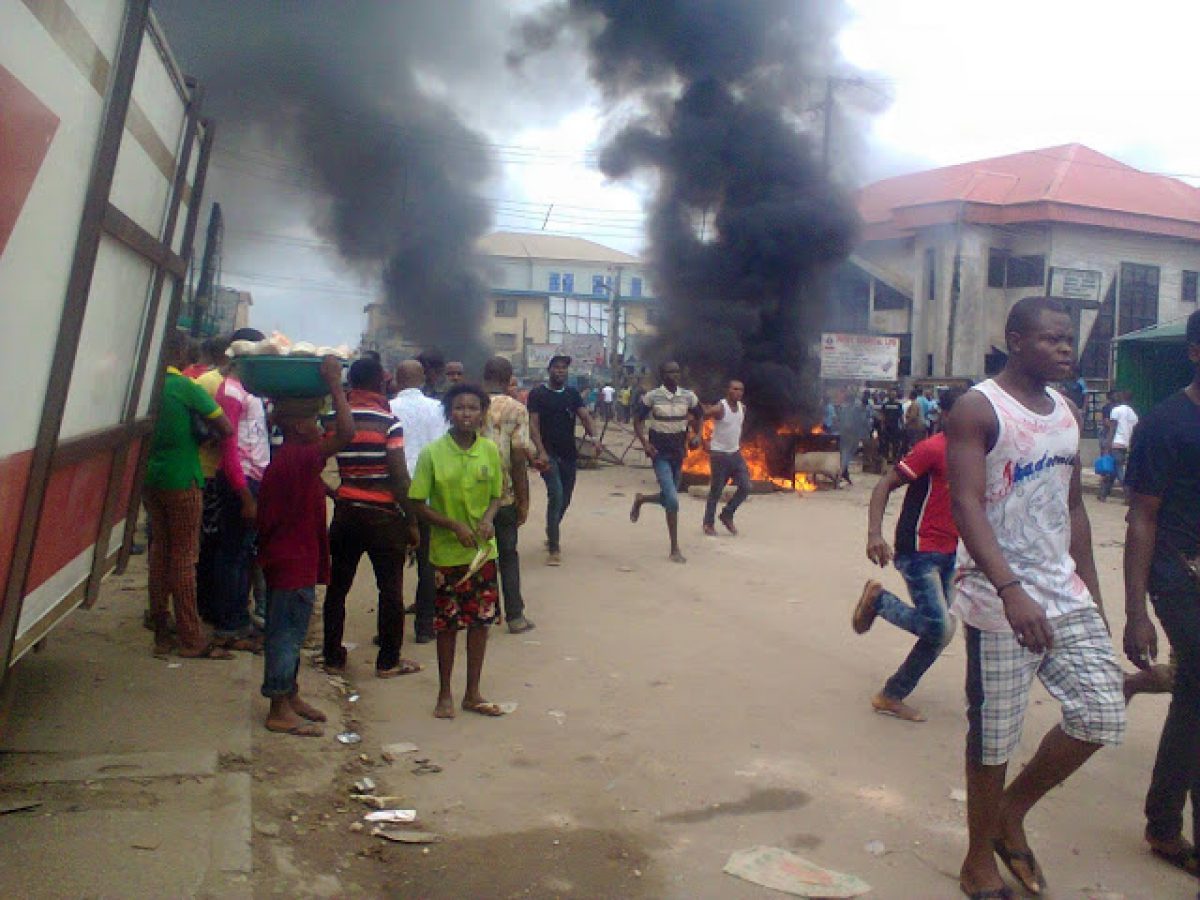The issue of vigilante justice in Nigeria has generated much interest and debate in recent years as citizens struggle to find a balance between their desire for security and the rule of law.
It is common to hear individuals taking the law into their own hands, meting out punishment to those they feel have committed crimes but have not been coming into the light of justice by the authorities.
I once witnessed the brutal beating of a man by a group of vigilantes in Lagos. The man had been accused of stealing a phone from a market stall and had been caught by a group of people who decided to take matters into their own hands.
They beat him mercilessly, even after he had admitted his crime and returned the phone. It was a disturbing sight that had stayed with me for years. The incident left a deep impression on me due to the complete absence of respect for the rule of law.
Read Also:APC women leaders, and others, kidnapped in Kaduna
The vigilantes had no interest in handing the man over to the police or ensuring that he received a fair trial. Instead, they took justice into their own hands, resulting in severe physical harm to the accused.
It served as a poignant reminder that while the yearning for security is undoubtedly relatable, we must consistently uphold the paramountcy of the rule of law in preserving a righteous society.
Check out Nigeria Crime for more news about Vigilante groups.
Let’s find out more about the prevalence of vigilante justice in Nigeria, its causes, and implications. What are the various viewpoints regarding this matter, the steps taken to tackle this pressing concern, and the impact of these initiatives in mitigating the surge of vigilante in Nigeria?
Prevalence Of Vigilante Justice In Nigeria
The prevalence of vigilante justice in Nigeria is a growing concern, a complex issue that cannot be easily swept under the rug.
While it is challenging to identify the exact number of cases of vigilante justice in Nigeria, statistics and figures show that it is quite prevalent and affects a significant portion of the population.
Reports have indicated that vigilante groups are active in at least 28 states in Nigeria, and their activities have resulted in many deaths, injuries, and property damage.
The increase in social media has furthermore played a significant role in the amplification of vigilante justice in Nigeria, especially when so many are searching for a method on how to join vigilante group of Nigeria,
Plus, social media has made it easier for individuals to share graphic images and videos of vigilante attacks, further contributing to normalizing this behavior. The prevalence of vigilante justice in Nigeria is a concerning issue that requires urgent attention and intervention from law enforcement agencies, government, and civil society organizations.
Causes Of Vigilante Justice In Nigeria
Vigilante justice is a prevalent issue in Nigeria, and its causes can be traced to several factors:
1 The inability of the justice system to prosecute perpetrators of crimes has left many citizens disappointed and dissatisfied with the legal process. It has led to helplessness, which motivates individuals to take the law into their own hands.
2 There needs to be more trust between citizens and law enforcement agencies, with many people feeling that the security forces and police are corrupt and ineffective. This perception of the security forces has contributed to the rise of vigilante groups seeking protection and justice for themselves and their communities.
3 The absence of adequate security measures in communities, such as street lighting, surveillance cameras, and trained security personnel, has also contributed to the prevalence of vigilante justice in Nigeria
These factors create an environment where individuals are driven towards vigilante justice to protect themselves and their communities.
Addressing these underlying causes will be critical to reducing the prevalence of vigilante justice in Nigeria.
Implications Of Vigilante Justice In Nigeria
Vigilante justice in Nigeria has serious and far-reaching implications that cannot be overlooked. The obvious consequences of this practice are violating human rights or the rule of law.
Vigilante groups often act based on perception, without proper investigation or trial processes, leading to the criminal punishment of innocent people. It undermines the fundamental human rights of individuals and weakens the rule of law.
Furthermore, the rise in mob justice is a direct consequence of the prevalence of vigilante justice. There have been cases where individuals accused of committing crimes have been lynched or burned alive by angry mobs. This trend has led to anarchy and lawlessness in communities, as people take it upon themselves to do justice without regard for the rule of law or established procedures.
Moreover, the most concerning implication of vigilante justice is the threat to community peace and stability. Rather than promoting security, vigilante justice often fuels fear and mistrust among residents, leading to further violence and instability.
It also undermines the efforts of law enforcement agencies to maintain peace and order in communities, leading to increased insecurity and social unrest.
Balancing Citizens’ Desire For Security And The Rule Of Law
In Nigeria, citizens are understandably concerned about their safety and security. Unfortunately, this results in the rise in vigilante justice as individuals take matters into their own hands. While this desire for security is understandable, remember the importance of the rule of law.
Vigilante justice undermines the justice system and can result in innocent people being punished. Striking a balance between security and the rule of law is paramount to creating a safe and just society.
Need For Effective Law Enforcement And Judicial Systems
One of the reasons that vigilante justice is so prevalent in Nigeria is the lack of trust in law enforcement.
Citizens often feel they need not be adequately protected and that the courts will not take their cases seriously. To reduce the instances of vigilante justice, the government must invest in strong, effective law enforcement and judicial systems that citizens can trust.
Importance Of Community Engagement And Trust-Building
Community engagement and trust-building are other key factors in reducing the prevalence of vigilante justice.
Communities need to feel they have a stake in their safety and security. It means creating programs that involve citizens in shaping public safety policy and giving them a voice in how their neighborhoods are policed.
When communities feel invested in their safety, they are more likely to work with the government and police, reducing the need for vigilante justice.
The Role Of Education And Awareness In Addressing The Root Cause Of Vigilante in Nigeria
Finally, education and awareness-raising are crucial in addressing the root causes of vigilante justice. Often, individuals turn to vigilante justice because they feel they have no other options.
By educating citizens about their rights, the role of the judicial system, and other available resources, such as hotlines and other means of addressing crime, communities can be empowered to take action without resorting to vigilante justice.
To Wrap Up
Vigilante justice in Nigeria remains a pressing issue that requires urgent attention. A concerted effort is needed from government, law enforcement agencies, and other stakeholders to address the root causes of this phenomenon. Doing so can promote a culture of respect for the rule of law and ensure justice is delivered fairly and impartially.
©NigeriaCrime




